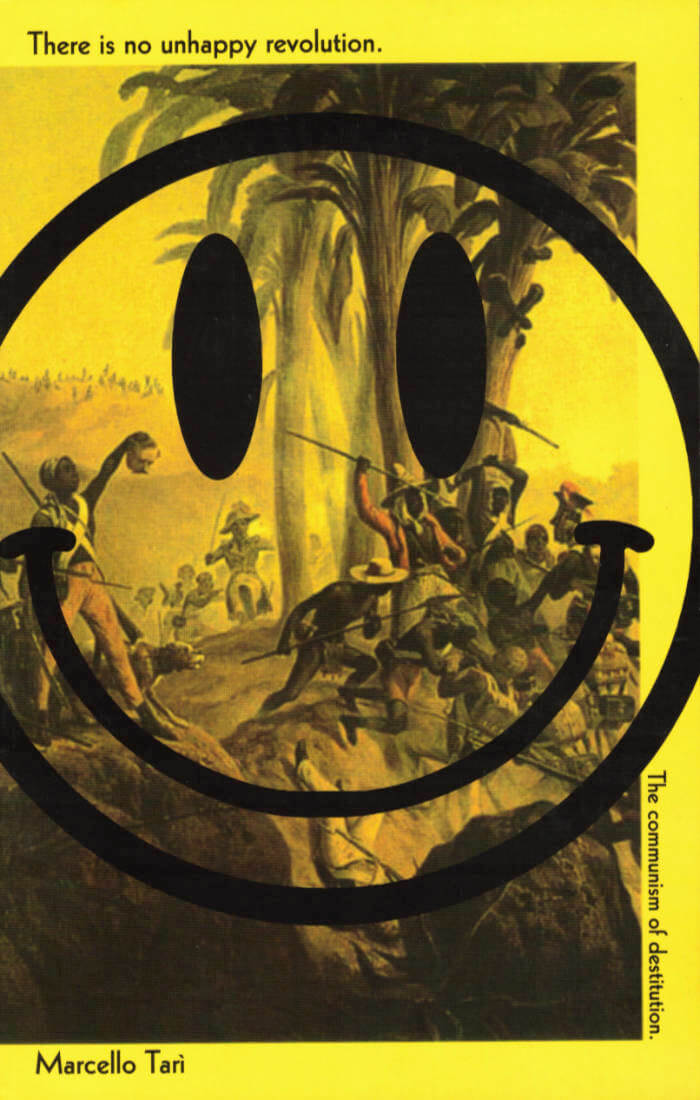
There Is No Unhappy Revolution: The Communism of Destitution
In a time of ongoing political, economic, and climate crisis, can we afford our collective unhappiness any longer? There is No Unhappy Revolution gives expression to the age of revolution unfolding before us. With equal parts sophistication and raw urgency, Marcello Tarì identifies the original moments as well as the powerful disruptive and creative content haunting our times like a specter.
One hundred years after the October Revolution, amidst our current civilizational crisis, is it still possible to think and build communism? Yes, Tarì responds, provided we radically rethink the tradition of revolutionary movements that have followed one century to another. Offering both a militant philosophy and a philosophy of militancy, he deftly confronts the different contemporary movements from the Argentinean insurrection of 2001 to Occupy Wall Street, the Spanish Indignados, the French movement against the labor law, and the Arab spring, resurrecting and renewing a lineage of revolutionary thought, from Walter Benjamin to Giorgio Agamben, that promises to make life livable.
Language: English







